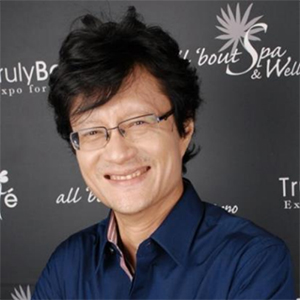
Edward Chan
Dr. Chan gained his degree in psychology with Honours from Middlesex University, U.K.; his MSc. degree in Learning from the University of Lancaster, U.K. His Doctorate in Psychology was co-supervised by Professor Kim Plunkett at the Department of Experimental Psychology, University of Oxford, UK. Dr. Chan has over 20 years of clinical experience and is trained in Voice Dialogue, IFS (Internal Family System) and Transactional Analysis as well as Schema Therapy. Dr. Chan is the Chief Editor of the International Journal of Psychotherapy, Counseling & Psychiatry: Theory, Research & Clinical Practice. Dr. Chan was a keynote speaker at multiple international conferences including the World Congress on Mental Health 2016 in Moscow; the 4th International Psychotherapy, Counseling & Psychiatry Conference 2020. He is also the author and co author of multiple academic papers and psychology books including: Towards a Reformulated Theory Underlying Schema Therapy: Position Paper of an International Workgroup published in The Journal of Cognitive Research & Therapy which he co-authored with Professors Arntz and Rijkeboer; Schema Chemistry published in the Journal of Developmental Diversity; and Current Research and Clinical Practice of CBT in Asia edited by Professor Tian Oei.
Integrating Voice Dialogue, IFS & Positive Psychology with Schema Therapy for Healthy Modes
Schema Therapy, with its formulation of multiple modes, has in common with some other psychotherapy modalities that view the person as having multiple parts, such as IFS (Internal Family System) (Swartz, R, 2017; 2021) and Voice Dialogue (Stone, H and Stone, S,1998). The modes and Schema in Schema Therapy are mostly considered as maladaptive and need to be rescripted or changed to healthy ones. There is, however, little specification on the healthy mode and schema. The Voice Dialogue model, on the other hand, does not view the parts as maladaptive, and the therapy involves developing an awareness, thereby allowing the client to make a healthy choice of choosing the best part for a given situation. There is also scant specification in the Voice Dialogue model on how this healthy choice of the parts is to be made, and there is an inherent assumption of a healthy “aware ego” to be able to make this choice with increased awareness of the different parts, just as in IFS there is an assumption of a healthy self that can lead the parts or selves towards a healthy outcome. This presentation explores how insights from Positive Psychology such as the Happiness principles expounded by Brooks and Winfrey in: Build the Life you want, The Art and Science of getting Happier. (2023), can be utilised conceptually to facilitate the therapeutic process of Voice Dialogue and Schema Therapy in a modified model whereby all the parts can be validated, accepted, and selected based on the happiness principles for any given situation to facilitate a healthy selection of modes leading to a healthy and happier (ibid.) outcome for clients.
Target Audience: Intermediate-Advanced level
How does culture shape the way we define what is healthy in schema therapy?
Co-presented with Michelle Neo, John Louis, Beatrice Ng-Kessler, Chaiyun Sakulsriprasert, Duygu Yakin
The majority of schema therapy research is rooted in Western contexts, resulting in clinical samples that are largely representative of Western populations. In the Delphi consensus study, Pilkington and colleagues (2022) identified the important gaps in research on the schema therapy model with two areas of concern relating to the need to expand research to “people who are from racial and ethnic minorities” and “adapting schema therapy to different cultures.” Currently, there are few papers that have examined schema therapy within Asian populations, however, the existing findings do reflect the universality of both positive and negative schemas when compared across different cultures (Louis et al., 2018) and that with cultural modifications (whilst preserving the integrity of the schema model) it is an appropriate therapy for Asian clients (Mao et al., 2022). Unfortunately, the investigation of schema therapy across Asian demographics remains limited due to challenges such as difficulty in participant recruitment, resource constraints, complexities in the translation of schema terminology, and a shortage of trained schema therapists in the Asian region. This Round Table will tie into the conference theme “How Schema Therapy Empowers Healthy Modes” by exploring the question “How does culture shape the way we define what is healthy in schema therapy?” with an emphasis on the exploration of what healthy schemas and modes can look like in Asian populations (versus non-Asian/Western populations). Our discussion will explore the intersection of schema therapy principles and Asian cultural values including how the definition of “healthy” may present differently in a Western vs. Eastern context, how schemas and modes may present differently across cultures, the potential issues that may arise when culture is not factored in schema formulation and how certain cultural concepts (e.g. filial piety) may pose challenges for shifting coping modes (e.g. compliant surrenderer). Each of our panellists will share their unique thoughts and experiences in their application of schema therapy within Asian populations across both research and clinical settings. References Louis, J. P., Wood, A. M., Lockwood, G., Ho, M. H. R., & Ferguson, E. (2018). Positive clinical psychology and Schema Therapy (ST): The development of the Young Positive Schema Questionnaire (YPSQ) to complement the Young Schema Questionnaire 3 Short Form (YSQ-S3). Psychological Assessment, 30(9), 1199-1213. Mao, A., Brockman, R., Neo, H. L. M., Siu, S. H. C., Liu, X., & Rhodes, P. (2022). A qualitative inquiry into the acceptability of schema therapy in Hong Kong and Singapore: implications for cultural responsiveness in the practice of schema therapy. Clinical Psychologist, 26(3), 341-350. Pilkington, P. D., Younan, R., & Karantzas, G. C. (2023). Identifying the research priorities for schema therapy: A Delphi consensus study. Clinical Psychology & Psychotherapy, 30(2), 344–356.

